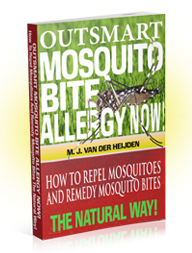What Attracts Mosquitoes
The major concern is not how itchy their bites get. The main problem is whether or not the mosquito is carrying diseases that may be lethal if not treated immediately. The worst part is a single female mosquito can lay eggs by the hundreds. All they need is a serene winter, a wet spring, and a warm summer to multiply.

Mosquitoes biting, Mosquito Biting—sitsgirls (Flickr.com)
How mosquitoes they find us?
Perhaps the biggest question as far as mosquitoes are concerned is how do they find their prey? Many studies have been devoted to the incredible ability of mosquitoes to locate and transmit a disease to humans.
Mosquito biologists explained that these bugs find us through our scent. Insects have excellent olfactory glands that enable them to have extraordinary sense of smell. In fact, a big part of a mosquito’s brain is devoted to their sense of smell.
What’s in your blood?
The mosquitoes that bite you are females that are ready to reproduce. They need blood meals to produce eggs and they use their sense of smell to find it. They are attracted to a chemical substance in the blood known as nonanal. Humans and birds produce this substance and its powerful scent is irresistible for mosquitoes.
The bugs that are vectors of the West Nile virus, known as Culex mosquitoes, can detect even the smallest amount of nonanal through their antennae’s receptor neurons. They use the same mechanism to detect the substance in birds’ blood. The main hosts of the West Nile virus are birds. Mosquitoes transmit the virus from birds to humans and other animals when they bite.
How does this information help me?
The discovery and understanding of the olfactory mechanism of mosquitoes is a huge step in developing better methods of preventing diseases. At the same time, this information is also important in devising ways to control mosquito population.
This new answer also leads to better questions which, if answered, will help improve disease control. For instance, researchers and scientists are now curious about the role of plants and the chemicals they produce in relation to mosquito behavior. It is also curious how they are repelled by certain plants while they are attracted to others.
If not feeding, these insects spend a significant amount of time on plants. They take in sugars from vegetation, which provides them with the energy that they need when they feed. [pullquote]Understanding which chemicals are involved in their feeding selection enables improvements in pest and disease control.[/pullquote]
Is DEET not enough against mosquito protection?
Researchers maintain that DEET is still one of the most effective repellent available in the market. However, recent discoveries debunk the old notion that DEET masks odors that mosquitoes are attracted to. According to the latest research, mosquitoes can actually smell DEET but they choose to avoid it. Further understanding of the mechanism behind this can help save lives especially in areas of the earth where mosquitoes are responsible for many deaths.
Filed under: Mosquito Control
Like this post? Subscribe to my RSS feed and get loads more!



Leave a Reply
You must be logged in to post a comment.